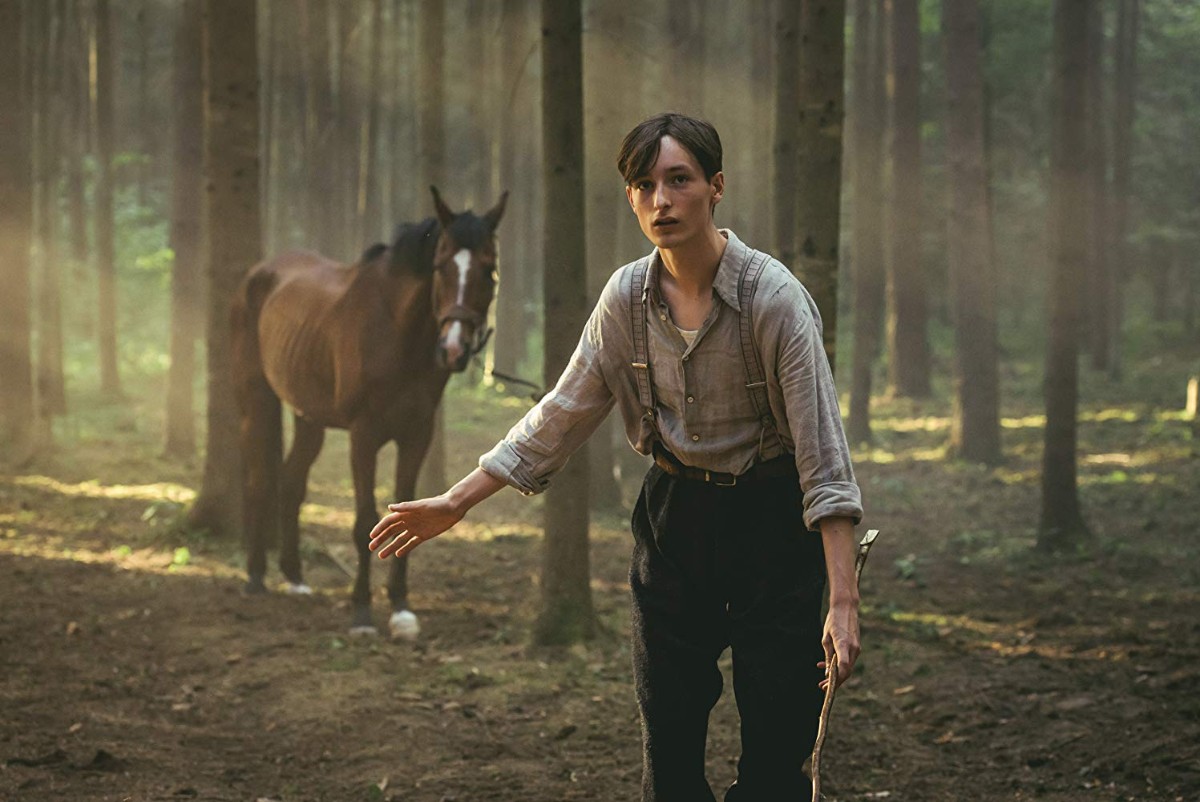Distilling Per Petterson’s complex, non-linear, acclaimed Norweigan novel “Out Stealing Horses,” writer-director Hans Petter Moland’s (“Aberdeen,” “Cold Pursuit”) film of the same name is a visually rich rumination on the multi-generational traumas that spiraled out of World War II. Named after an innocent child’s game, in which protagonist Trond and his friend Jon distract and ultimately jump on untamed horses to ride them, Moland’s film acutely utilizes the framework of a coming-of-age tale to explore how youth distorts relationships, providing outsize significance to minor events and how age doesn’t necessarily relate to the emotional ability to cope with tragedy.
Beginning in the frigid winter of Norway in 1999, an aging Trond (Stellan Skarsgard) has just moved back to the country from Sweden, where he has spent the better part of his life. After the death of his wife, he has chosen to return to the solitude that he idealized in his youth, only keeping company with a kindly neighbor (Bjorn Floberg). Quickly, the film flashes back to 1948, post-war, where a 15-year-old Trond (Jon Ranes) comes of age living in a ramshackle cabin with his woodsman father (Tobias Satelmann) helping cut timber and playing with his friend, Jon (Sjur Vatne Brean). During this idyllic summer, tragedy eventually befalls Jon, who forgets to watch his twin brothers, leading to one accidentally shooting the other. At the funeral, Trond meets Jon’s mother (Danica Curcic), who he quickly begins to fantasize about, not realizing that perhaps his father might have a history with the woman.
While the majority of Moland’s film unfurls during that 1948 summer, he retains much of the structure of Petterson’s book, layering flashbacks on top of each other, sometimes moving around only a few days, and other times working backyards to show how Trond’s father was a quiet resistance fighter during WWII. By slowly moving backward in time, Moland mimics Trond’s own coming of age, slowly discovering that his romanticized images of his father and Jon’s mother are at odds with their own history and that he perhaps will never understand his father as much as he would like.
After the boy’s death, Trond’s father attempts to float timber down a river into Sweden, despite knowing that it is too early in the season to do so and that the wood will possibly sink because it is so sap-heavy. This attempt leads the father and son to follow the floating timber, dislodging the trees along the way, possibly leading to another
Yet to claim that these cyclical patterns of trauma are merely outgrowths of the war doesn’t do justice to how Moland frames these events. While they are obviously interlinked, they are not the will of some malevolent force, pushing these people into terrible decisions, each character is given the autonomy to move past the trauma but, as Trond demonstrates later in his life, they are often unwilling to. While the film piles on enough terrible events to justify multiple lifetimes of guilt, “Out Stealing Horses” is ultimately about the possible redemptive nature of acceptance.
While Skarsgard is the biggest name in the film, his role is mainly as narrator, as he isolates himself from the world, retreating back into this memory, first showing the splendid nature of that important summer before exposing the underlying sorrow that infects each character, a process that mimics young Trond’s coming of age. While Skarsgard is often given a single key to perform in, he does so with warmth. For a film steeped in such melancholy, Moland and cinematographer Rasmus Videbaek beautifully compose each scene, often juxtaposing Trond and Jon’s adventures in relation to the ecosystems of the forest. For Trond’s father, after the destruction of WWII, he has chosen to live in harmony with nature, something that the aging Trond naively hopes to rekindle.
It is perhaps not a spoiler to say that each time the teenaged Trond attempts to steal a horse, he is only given a few fleeting moments of untamed riding before he is thrown from the horse, yet his father explains, you have to decide for yourself what will hurt you. “Out Stealing Horses” may be a melancholy film, but it is always hopeful. [A-]
“Out Stealing Horses” is available at select theaters and VOD now.





